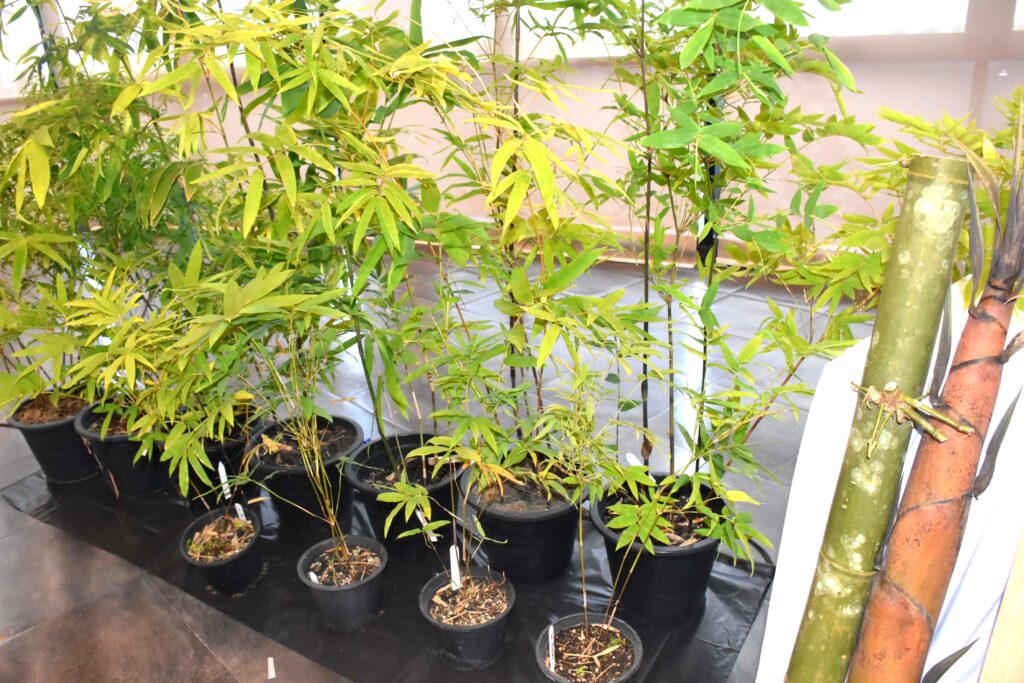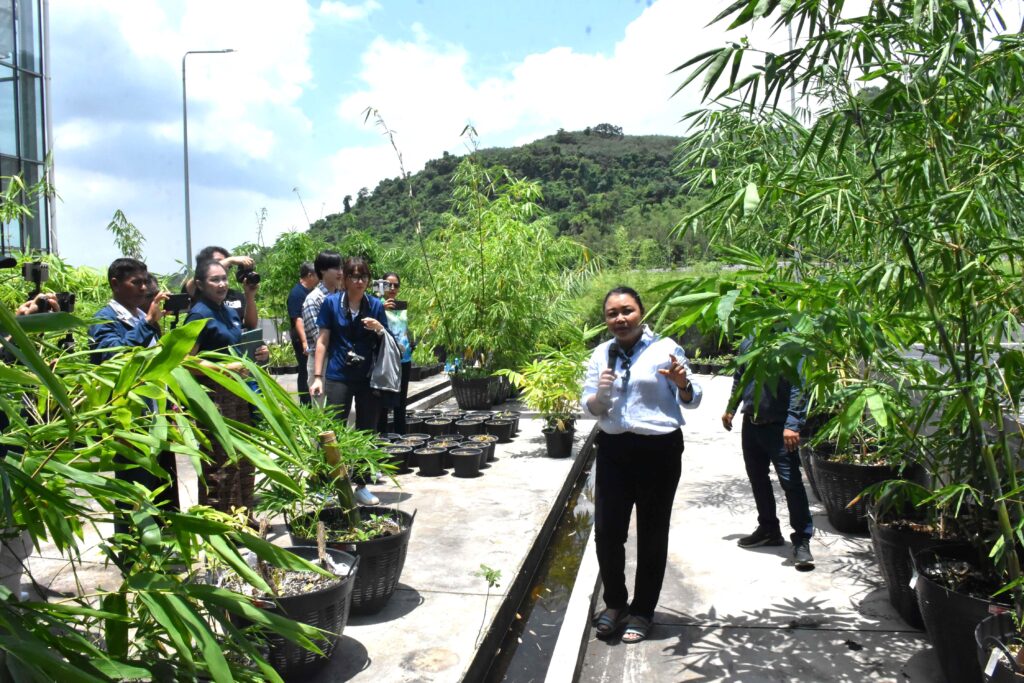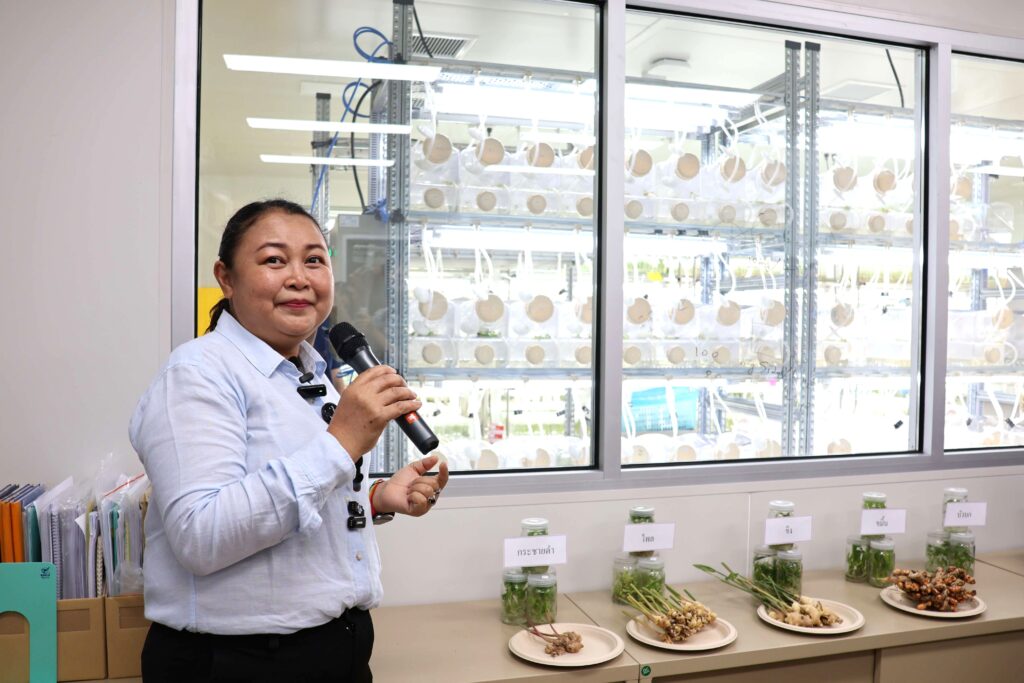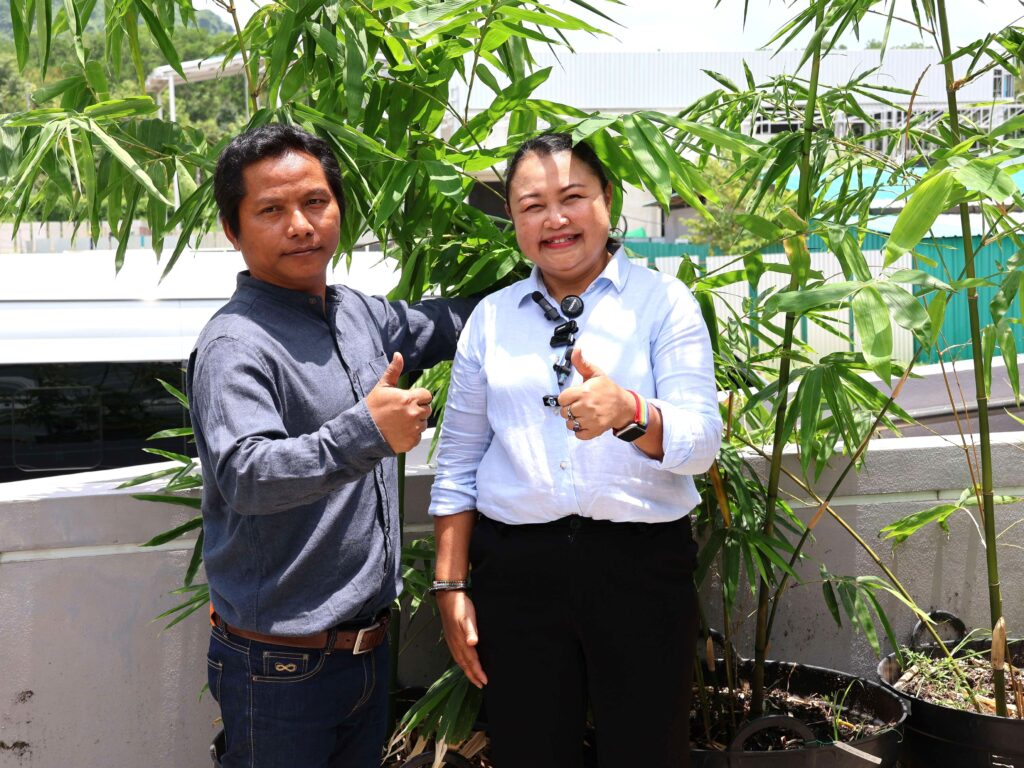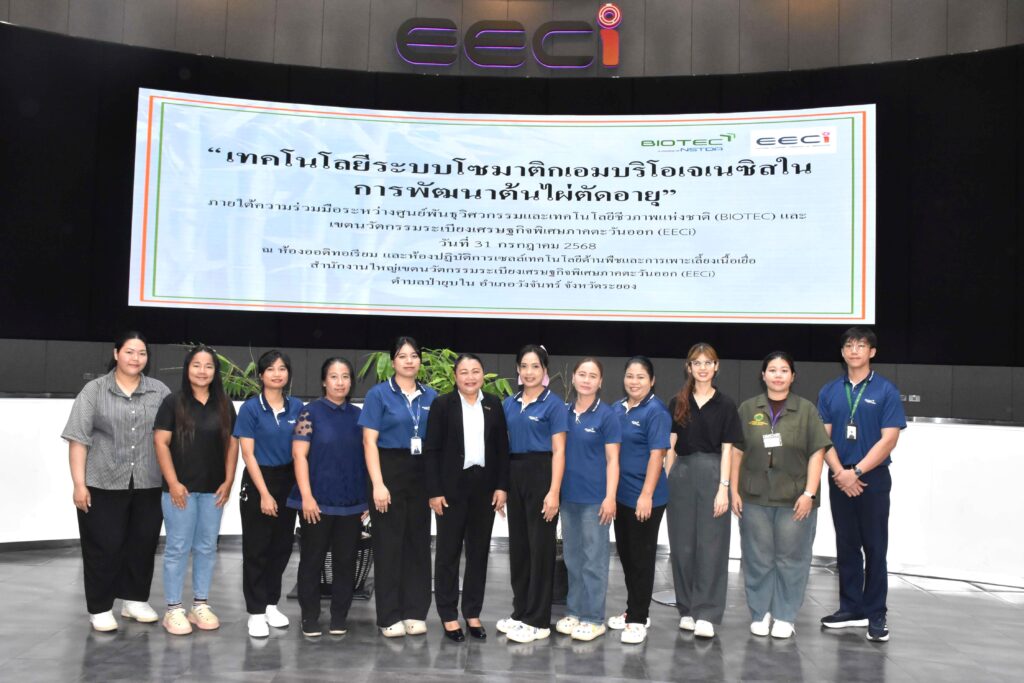
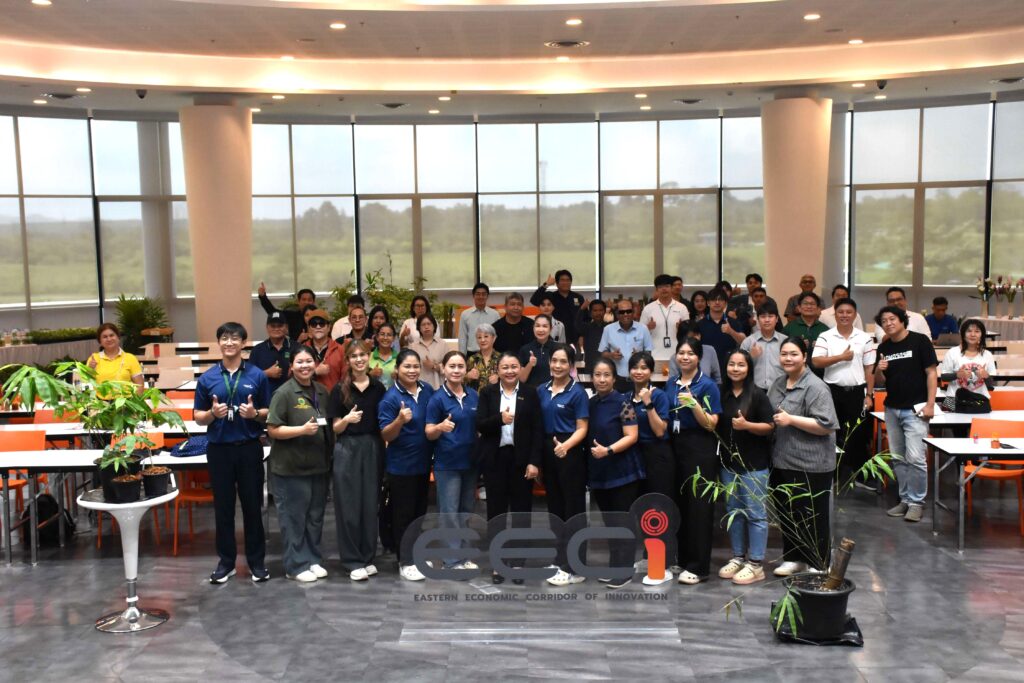
July 31, 2025 – at the Eastern Economic Corridor of Innovation (EECi), Rayong Province – The National Science and Technology Development Agency (NSTDA), through its National Center for Genetic Engineering and Biotechnology (BIOTEC), today launched “Somatic Embryogenesis Technology for Developing Age-Reset Bamboo Plants” at the Eastern Economic Corridor of Innovation (EECi) in Rayong Province. This innovation is set to transform Thailand’s bamboo cultivation into a sustainable bioeconomy.
Utilizing advanced plant tissue culture, this technology can rapidly produce high-quality bamboo seedlings in large quantities. Crucially, this process develops bamboo plants that “reset” their age by creating embryos from cells and developing them into complete plants. This distinctive feature effectively controls the bamboo’s life cycle, mitigating the significant risk of widespread, simultaneous flowering and subsequent die-off, a major challenge for farmers cultivating bamboo of unknown age. This innovation will enable farmers to access bamboo varieties with characteristics suitable for specific applications, consistent wood quality, and accelerated growth. This will enhance the efficiency and sustainability of bamboo cultivation for various industries, including processed bamboo products, biomass electricity, pulp and paper, and structural applications. NSTDA is committed to supporting and transferring this knowledge to enable entrepreneurs to fully leverage this research.
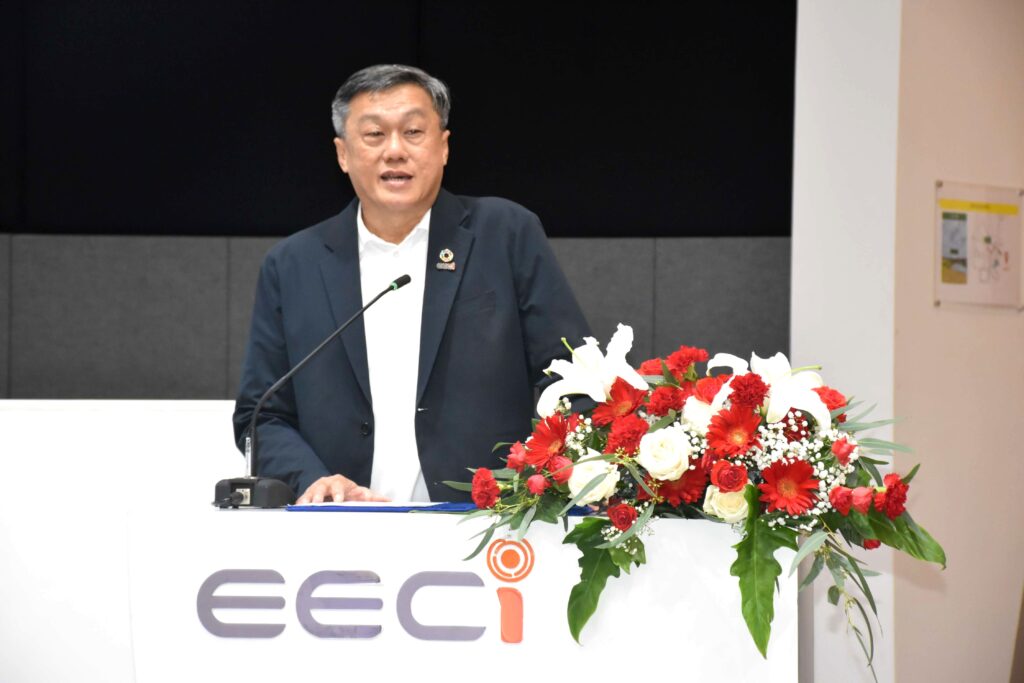
Dr. Wut Dankittikul, Executive Vice President of NSTDA, Eastern Economic Corridor of Innovation (EECi), stated that EECi serves as Thailand’s innovation hub, driving research, development, and technological advancement for industrial sectors, particularly target industries. The aim is to create added value and enhance national competitiveness. Biotechnology is a key target industry within EECi, where BIOPOLIS, a bio-innovation city, focuses on comprehensive research and development for the bioeconomy, including modern agriculture. He highlighted that somatic embryogenesis technology for age-reset bamboo is not merely about propagation; it represents a systemic upgrade of the entire bamboo industry, helping to reduce costs, increase yields, and ensure stable incomes for Thai farmers.
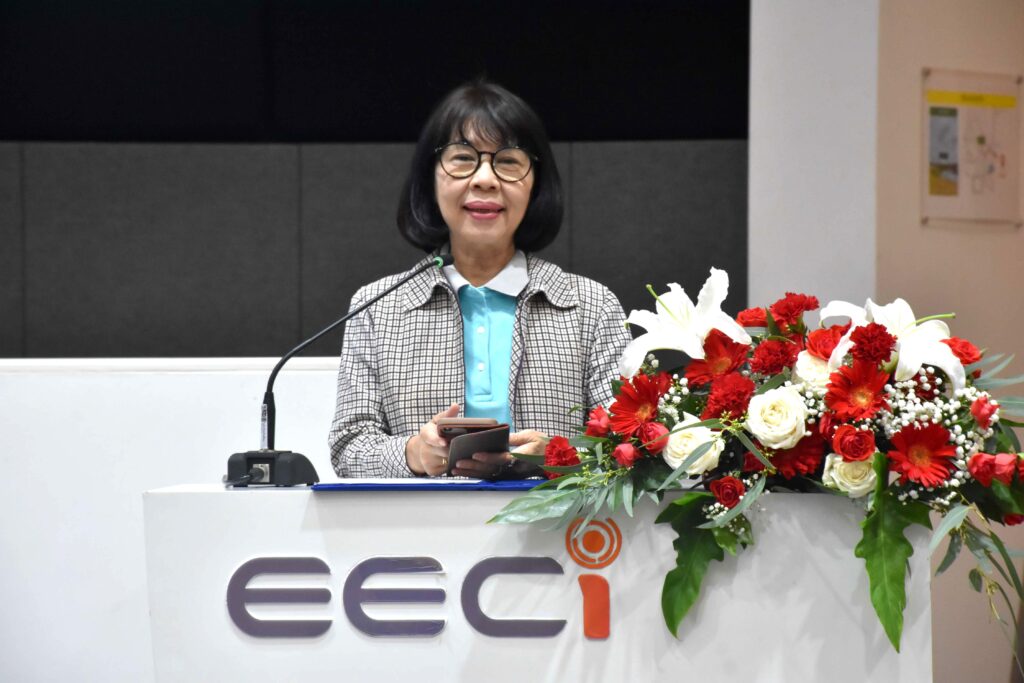
Mrs. Rungsima Tantalakha, Senior Program Director of the RDI Management for National Strategic Division, NSTDA, added that the bamboo research project is an integral part of the national strategy to promote the bioeconomy and circular economy. NSTDA is committed to translating research into practical applications, creating added value for agricultural products, and addressing the growing global demand for environmentally friendly materials. Bamboo, therefore, possesses high potential to become a significant economic crop in the future.
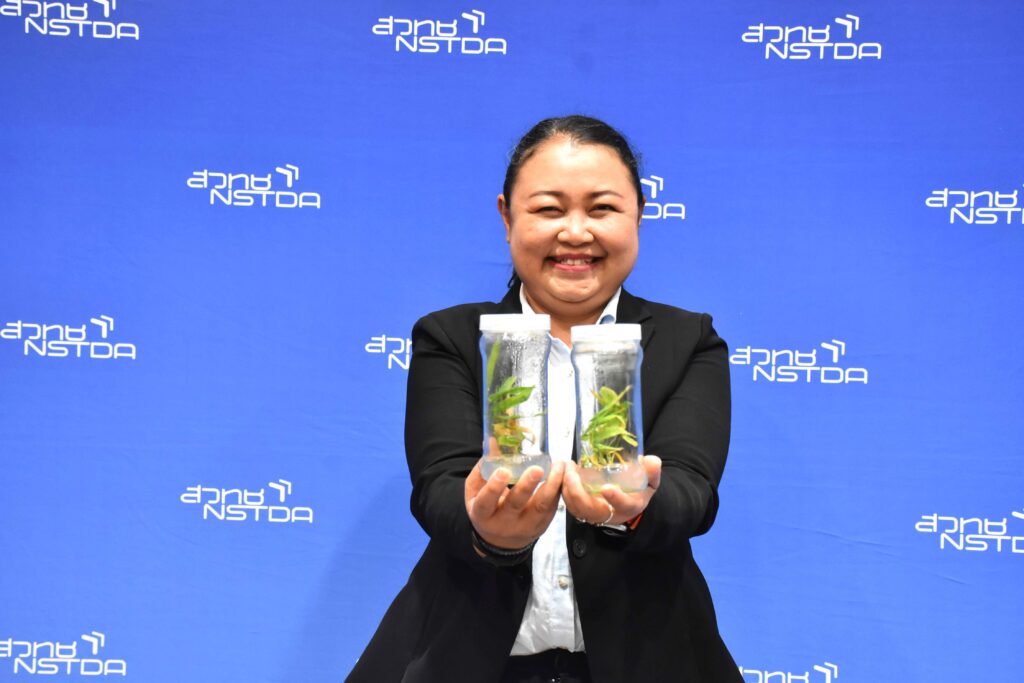
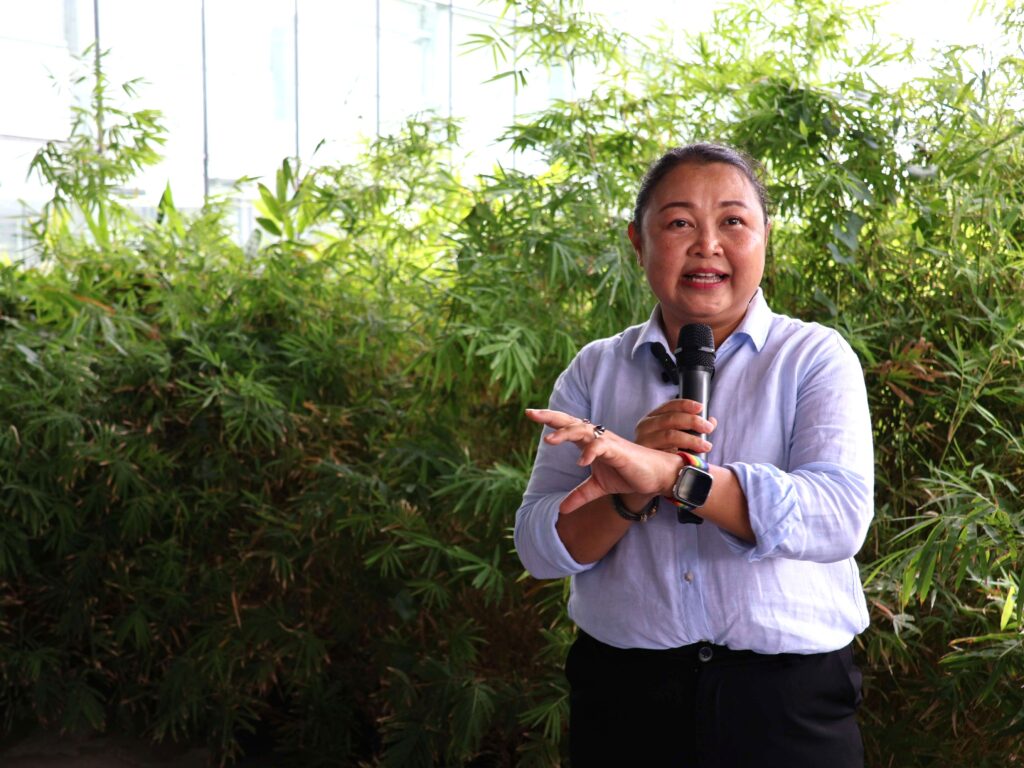
Dr. Yeetoh Dabbhadatta, a researcher with the Innovative Herbal Plant Factory Research Team, Integrative Crop Biotechnology and Management Research Group of BIOTEC, NSTDA, and an expert in tissue culture technology, explained that the research team developed the Somatic Embryogenesis system for creating bamboo plantlets (embryos) from meristematic tissue. This involves producing clonal plants from mother plants with superior characteristics. The initial studies involved culturing meristematic tissue from the flowers and axillary buds of selected Phai Fah Mon (Dendrocalamus asper ‘Fah Mon’) and Phai Sang Mon (Dendrocalamus hamiltonii ‘Sang Mon’) bamboo varieties on specific culture media in the laboratory. This induced the meristematic cells to differentiate into embryos, eventually developing into complete plants.
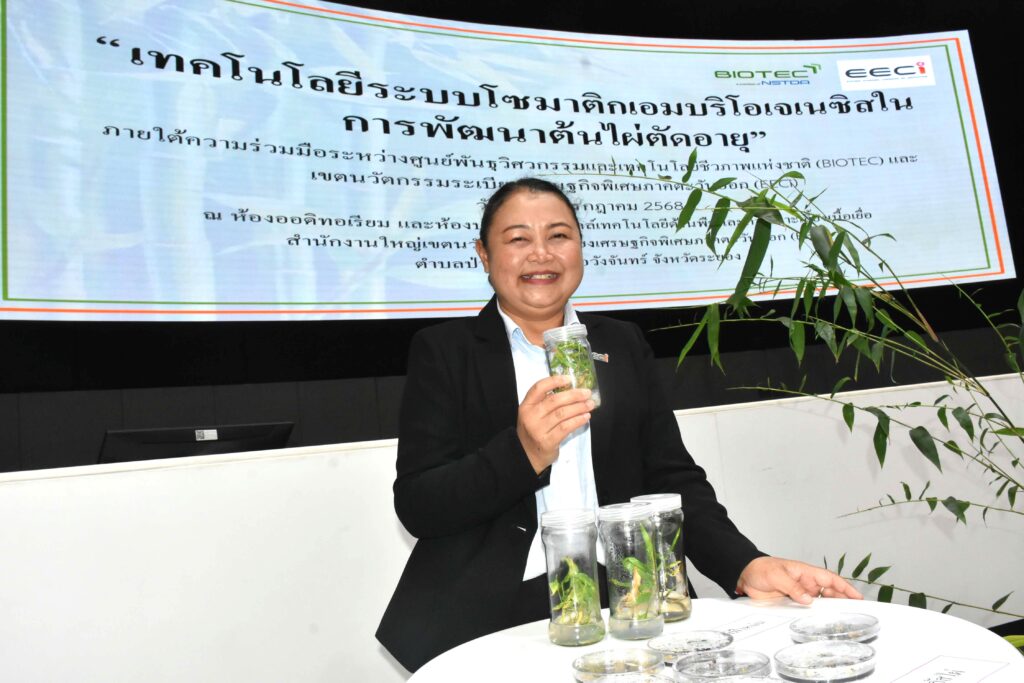
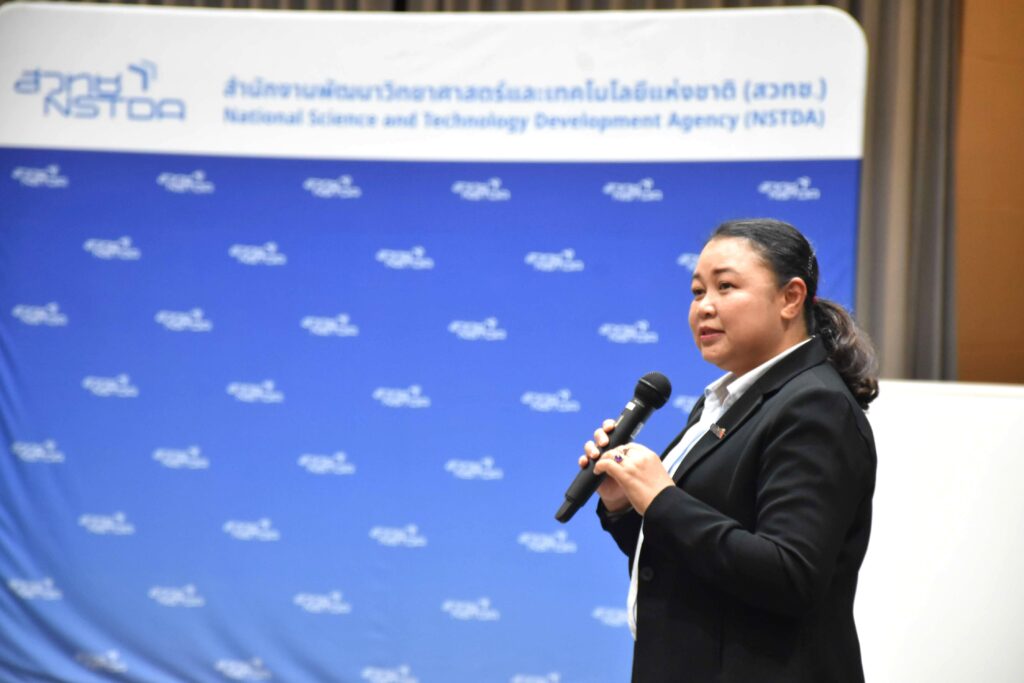
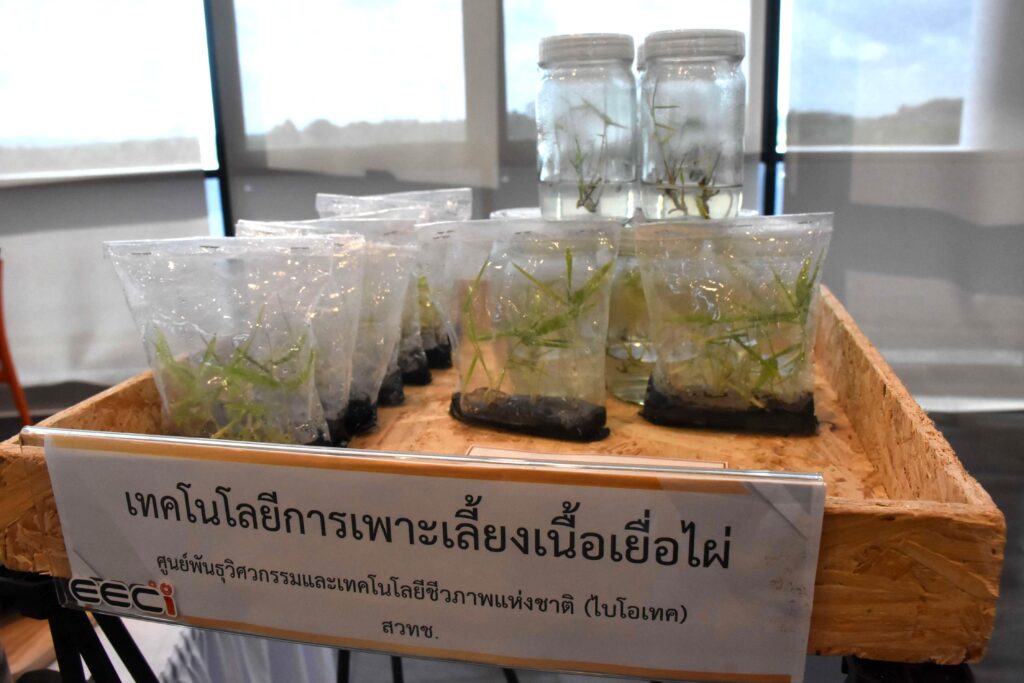
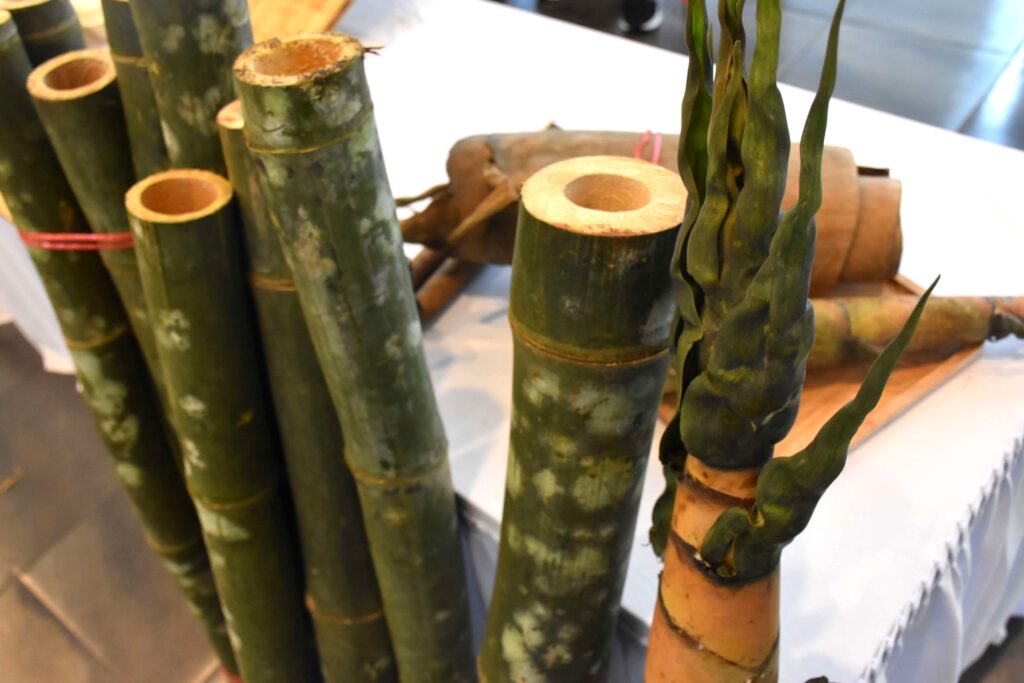
The bamboo plants obtained from this system will have the same genetic makeup as the mother plant but will undergo an “age-reset,” initiating a new life cycle. This is because the embryos develop from somatic cells, restarting their developmental program at the meristematic points. As a result, plants developed from somatic embryos are new bamboo varieties with a known starting age and do not exhibit the simultaneous flowering and subsequent die-off observed in mother plants. This allows the bamboo to maintain vegetative growth for a longer period, enabling continuous and optimal harvesting. Currently, the research team has successfully developed “Age-Reset Phai Fah Mon,” characterized by straight culms, uniformly thick wood, few branches, and smooth nodes, making it suitable for various applications in the processed wood, structural, and other industries. “Age-Reset Phai Sang Mon” is currently undergoing plant development for evaluation.
The application and utilization of age-reset bamboo can enhance the potential and promote the country’s bamboo industry in several ways, including:
- Mass production of high-quality plantlets: Meeting the demand for expanding cultivated areas.
- Management of the bamboo life cycle: Controlling growth and reducing simultaneous flowering and die-off.
- Cost reduction and yield increase: Superior plantlets with controlled life cycles lead to cost savings and higher yields.
- Support for diverse industries: Utilizing bamboo as a biomass energy source, for pulp and paper, construction materials, furniture, as well as food and medicine.
- Promotion of the bioeconomy and circular economy: Aligning with national policies for sustainable value creation from biological resources.
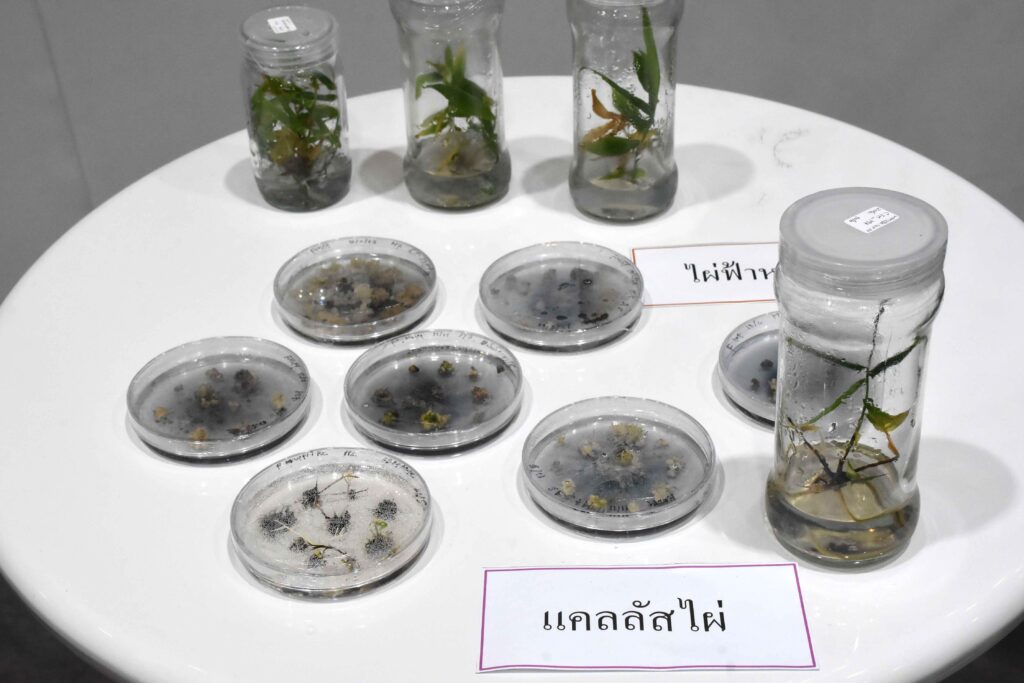
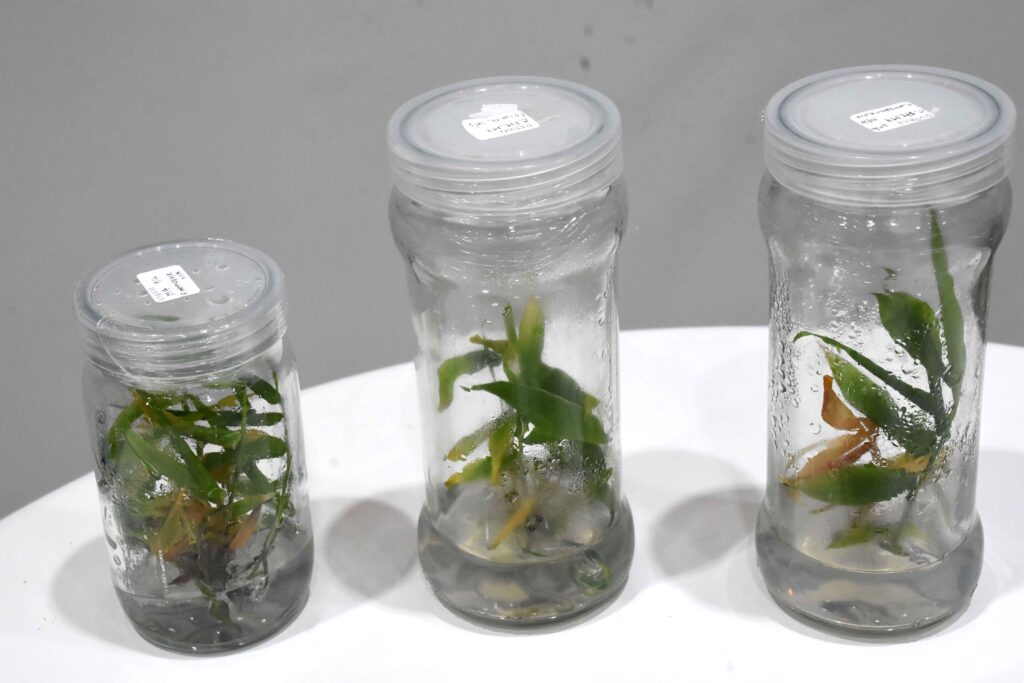
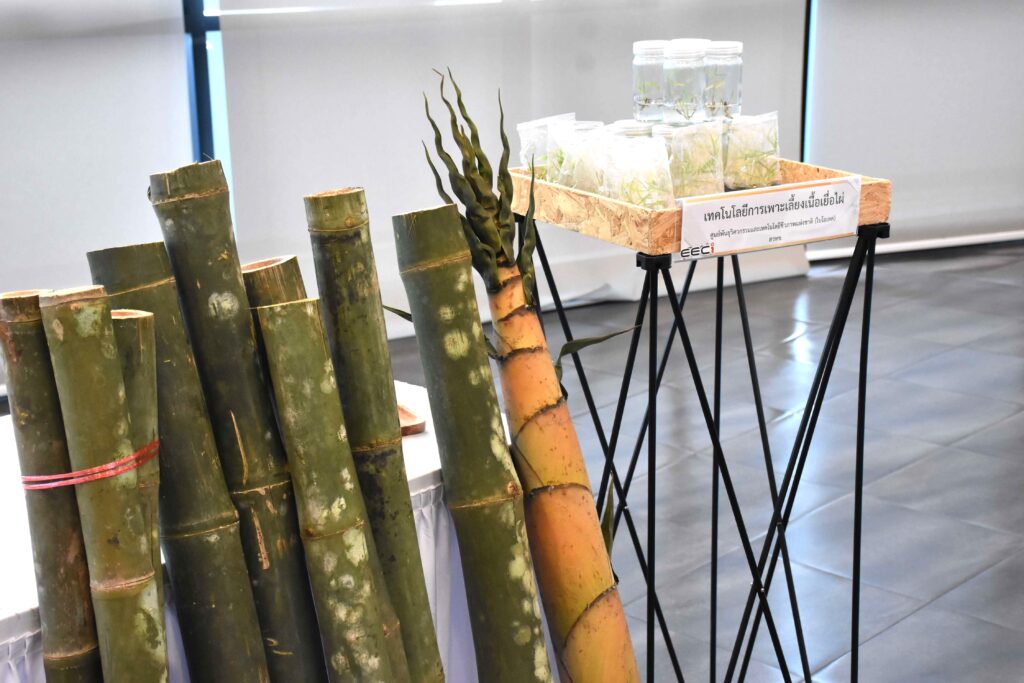
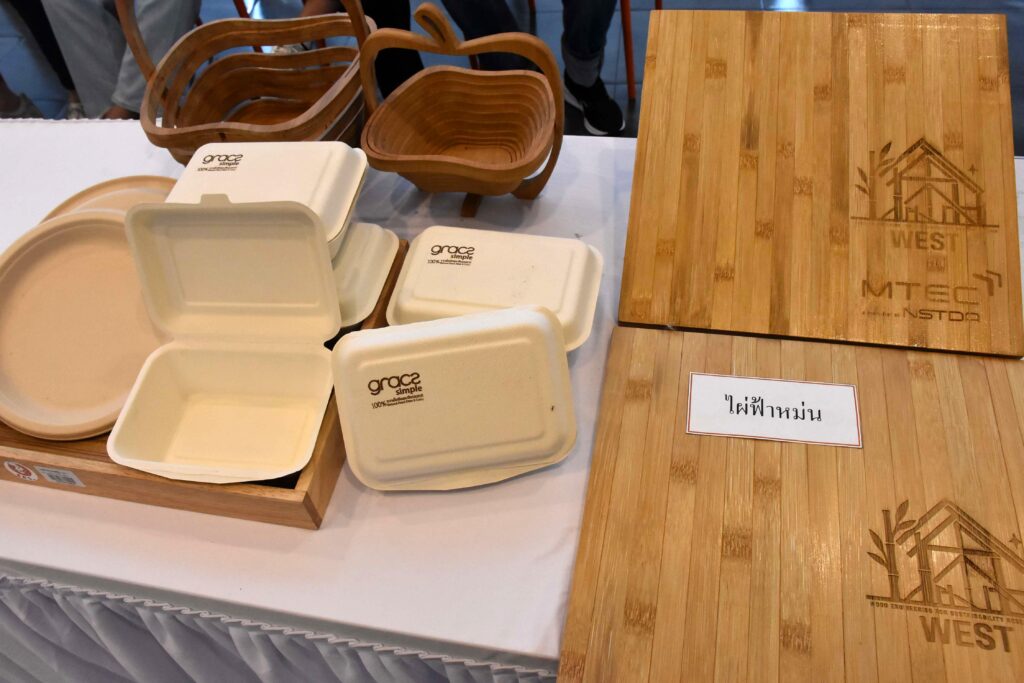
“NSTDA is ready to support and transfer this knowledge to enable entrepreneurs to fully leverage this research to increase productivity, reduce costs, and create sustainability for the bamboo business. Entrepreneurs and industrial groups interested in this technology can contact the research team at 097-203-6632 or email yeetoh@biotec.or.th,” Dr. Yeetoh Dabbhadatta concluded.
